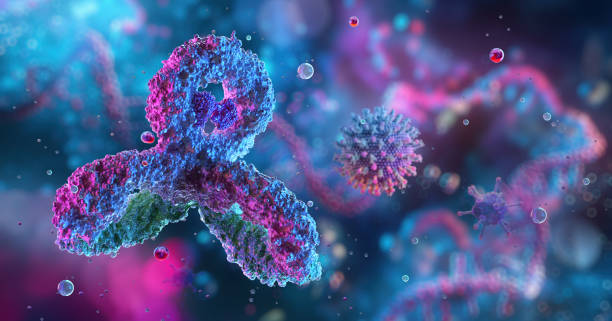A miscarriage is the loss of a pregnancy before 20 weeks’ gestation. Most miscarriages happen in the first trimester of pregnancy. In Nigeria, the rate of miscarriage stands at 45.5% (Anikwe et al. 2019) . While great attempts have been made through conventional Western medications, this problem still persists.
Chromosomal abnormalities are a leading cause of spontaneous abortions, accounting for 50-60% of spontaneous pregnancy losses, particularly in the first trimester. These abnormalities disrupt the normal development of the embryo or fetus, often resulting in pregnancy loss. In this article, we’ll be explaining the connection between chromosomal issues and miscarriages which is crucial for both clinical management and patient counseling.
The Role of Chromosomes in Development:
DNA comprises chromosomes that hold genetic information and direct the development of a fetus. Humans normally have 46 chromosomes, divided into 23 pairs. In fertilization, the egg and sperm each contribute 23 chromosomes to form a complete set. However, errors during cell divisions can lead to chromosomal abnormalities.
Types of Chromosomal Abnormalities:
There are numerous types of chromosomal abnormalities, which lead to miscarriages:
Aneuploidy: A missing or excess number of chromosomes. The most common aneuploidy involved in miscarriage is trisomy, in which one extra copy of a chromosome is present. Trisomy 16 is the most common single trisomy in first-trimester miscarriages.
Monosomy: A missing one chromosome. Turner syndrome, a monosomy X, is an established cause of early pregnancy loss.
Polyploidy: It refers to having a complete additional set of chromosomes, e.g., triploidy (69 chromosomes). Triploidy is generally incompatible with life.
Structural Abnormalities: These are translocations, inversions, and deletions, wherein parts of the chromosomes are rearranged or missing. Parental balanced translocations can lead to unbalanced translocations in the embryo, which results in miscarriage.
The risk of chromosomal abnormalities increases with maternal age. Older women have a higher likelihood of producing eggs with chromosomal errors. As a result, the rate of miscarriages due to chromosomal abnormalities also rises with maternal age.
Managing and Coping With Miscarriages
Miscarriage can be very distressing, both physically and emotionally. It is necessary to manage and cope well for healing appropriately. Allow yourself time to grieve; there is no right or wrong feeling. Discuss with loved ones, support groups, or therapists who deal with grief and pregnancy loss. Communicate with your partner, as you both process this painful experience. (Kristeen C., 2019)
Physically, follow your doctor’s advice regarding recovery. Gentle self-care, including rest, healthy eating, and light exercise, can aid healing. Emotionally, acknowledge your feelings without judgment. Journaling, creative expression, or mindfulness practices can be helpful. Consider professional counseling if grief becomes overwhelming. Remember, healing is a process, and seeking support is a sign of strength.
Conclusion:
Chromosomal abnormalities are a significant factor in miscarriages, particularly in the first trimester. Understanding the types of chromosomal abnormalities and their association with pregnancy loss is essential for providing appropriate clinical care and counseling to affected individuals. Genetic testing plays a vital role in identifying these abnormalities and informing reproductive decision-making, and if experienced, it may be helpful to give yourself time, be mindful of triggers, practice self-care, memorialize your loss, and avoid blaming yourself.
References:
- Hassold, T., & Hunt, P. (2001). To err (meiotically) is human: the genesis of human aneuploidy. Nature Reviews Genetics, 2(4), 280-291.
- Royal College of Obstetricians and Gynaecologists. (2017). The investigation and treatment of couples with recurrent miscarriage. Green-top Guideline No. 17.
- Stephenson, M. D., & Kutteh, W. H. (2007). Evaluation and management of recurrent early pregnancy loss. Clinical obstetrics and gynecology, 50(1), 132-145.
- Reddy, U. M., Wapner, R. J., Hale, J., Thom, E. A., Parker, C. B., Ramin, S. M., … & Varner, M. W. (2012). Karyotype versus microarray testing for genetic abnormalities after stillbirth. New England Journal of Medicine, 367(23), 2187-2195.





